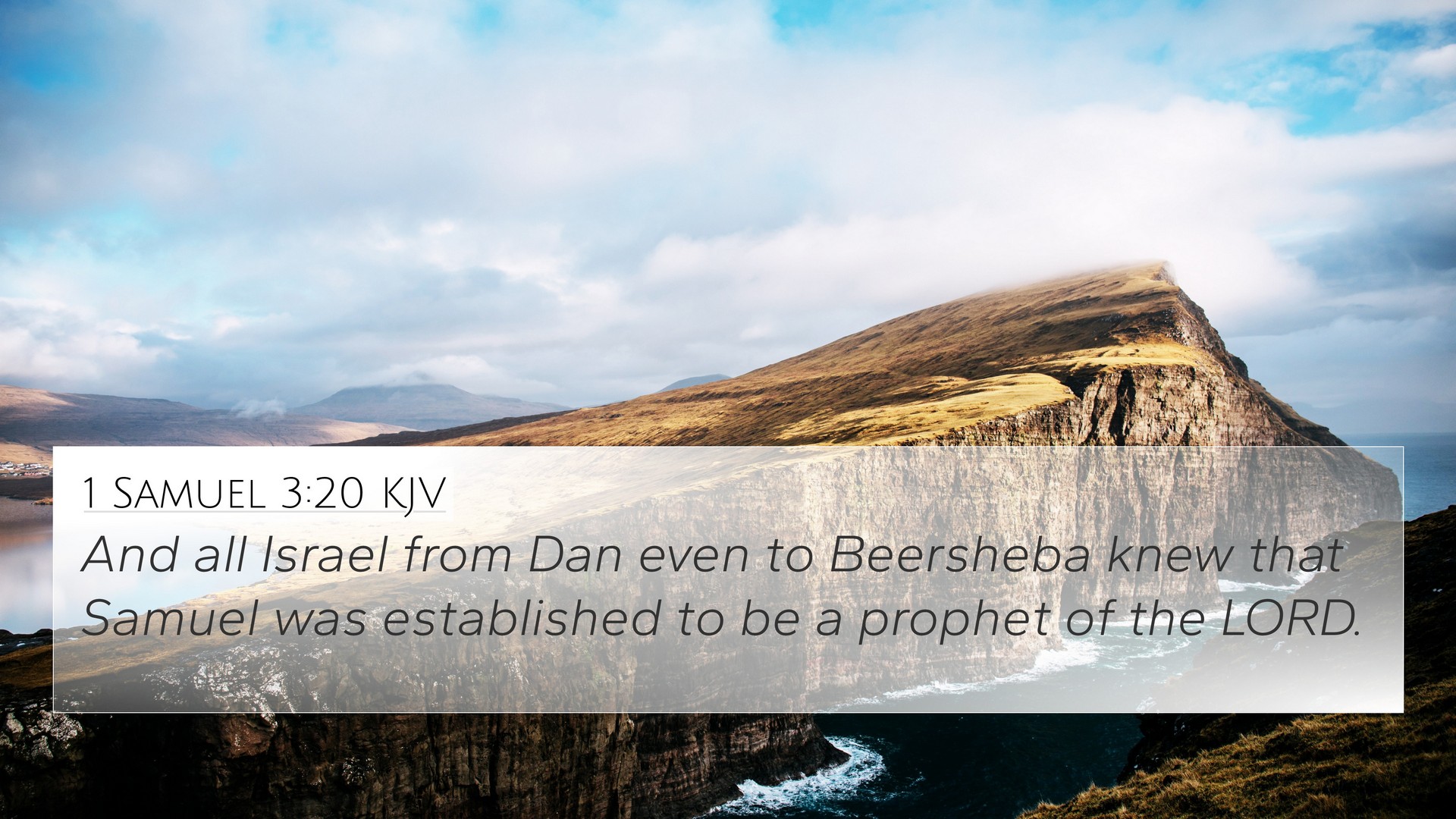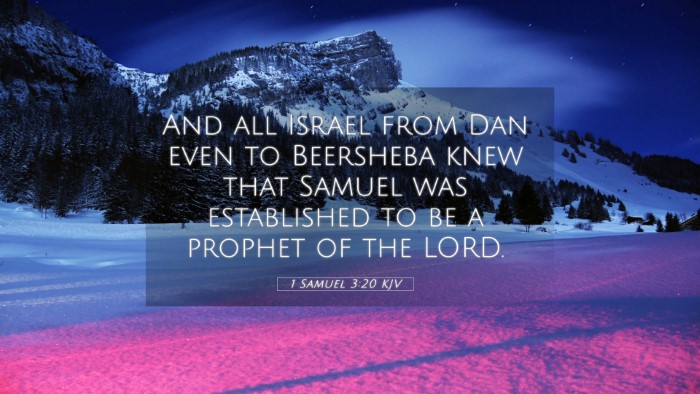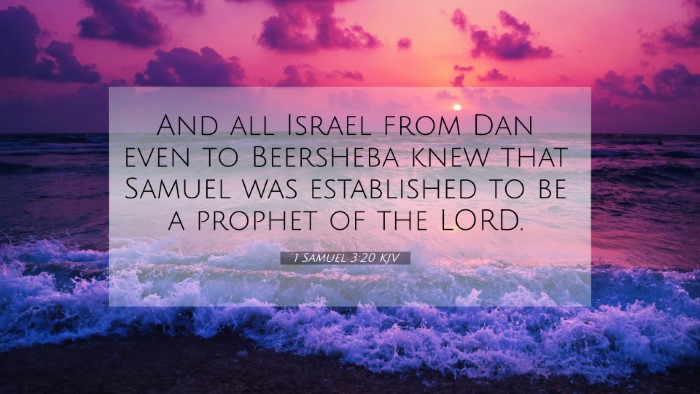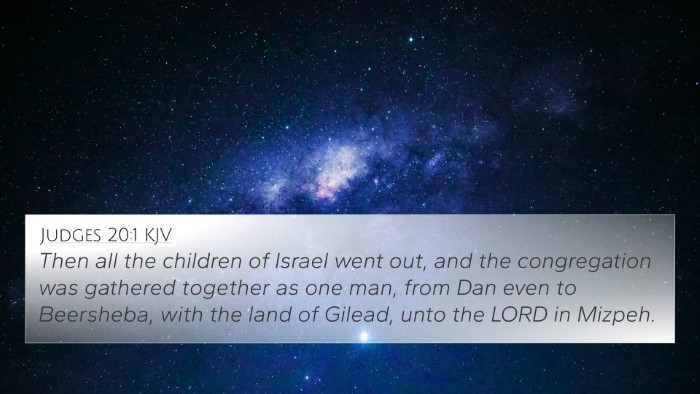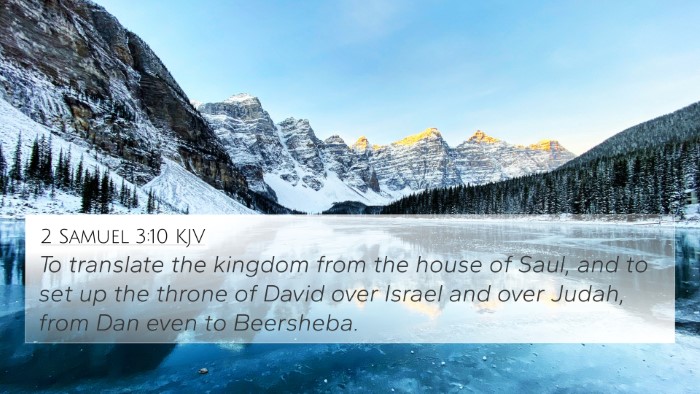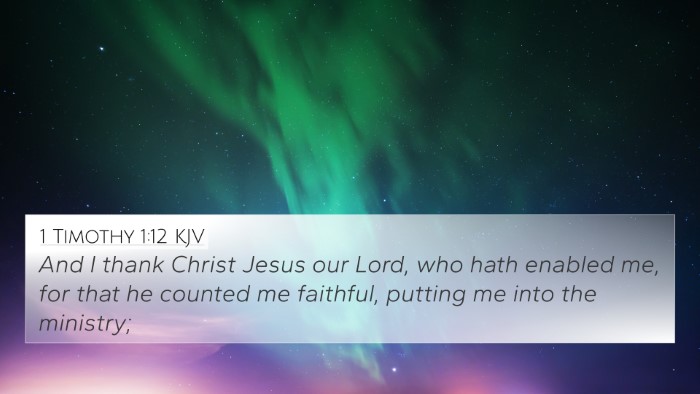Understanding 1 Samuel 3:20
Verse: 1 Samuel 3:20 - "And all Israel from Dan even to Beer-sheba knew that Samuel was established to be a prophet of the LORD."
Summary and Meaning
This verse signifies the recognition and establishment of Samuel as a prophet of God throughout the land of Israel. His role was not just limited to a personal calling but was acknowledged nationally. The mention of the geographical extent, "from Dan even to Beer-sheba," emphasizes the inclusive recognition across all tribes of Israel.
Historical Context
In this time period, Israel was undergoing significant transition. The prophetic office was vital for guidance, especially after the period of judges. Samuel’s establishment as a prophet heralded a new era of divine communication.
Insights from Public Domain Commentaries
Matthew Henry's Commentary
Matthew Henry emphasizes that Samuel's recognition as a prophet indicates God's active involvement in Israel's governance. He notes that this acknowledgment across the tribes shows that the prophetic office was respected and necessary for the nation. Henry remarks that a true prophet is known by the fruits of their ministry, evidenced by the nation’s reception of the word of the Lord through Samuel.
Albert Barnes' Notes
Albert Barnes highlights that the significant geographical reference in this verse illustrates the unification of Israel in their acknowledgment of God’s message delivered through Samuel. This establishes a connection between the people and their faith. He elaborates on the importance of having a prophet during this time and how Samuel’s validation as a prophet fosters trust in God’s guidance.
Adam Clarke's Commentary
Adam Clarke discusses the prophetic role of Samuel, noting that it was crucial for Israel's spiritual revival. He explains that the phrase "from Dan to Beer-sheba" indicates total acceptance and recognition by the people, encompassing all the tribes of Israel. Clarke stresses that this verse underlines the unity of the nation under divine prophecy, showing that God communicates through chosen vessels to guide His people.
Cross-References
This verse relates to several other scriptures that echo the themes of prophecy, divine guidance, and national recognition of God’s messengers:
- Deuteronomy 13:1-3: The importance of discerning true prophets.
- 1 Samuel 8:5: The people's request for a king and the transition in leadership dynamics.
- 1 Kings 18:17-18: Elijah's prophetic role recognized by the people of Israel.
- Amos 3:7: The Lord reveals His secrets to His prophets.
- Jeremiah 1:5: God's ordination of prophets before birth.
- Ezekiel 2:3-5: God commissions Ezekiel to speak to Israel, paralleling Samuel's calling.
- Luke 1:76: Zechariah's prophecy about John's role as the prophet of the Most High.
- Acts 3:24: The apostolic acknowledgment of the prophets from Samuel onward.
- Hebrews 1:1-2: God spoke through prophets in various ways, culminating in Christ.
- Revelation 11:3: The prophetic ministry in the last days, echoing the tradition established in Samuel's time.
Thematic Connections and Overall Significance
This verse illustrates key themes in Scripture, including:
- The Prophetic Office: It emphasizes the necessity of prophets in maintaining a connection between God and His people throughout biblical history.
- Unity of God’s People: The national acknowledgment of Samuel represents a significant moment of unity in a time of division and strife.
- Divine Communication: Samuel’s role echoes the ongoing theme of how God communicates His will through chosen individuals.
Tools for Bible Cross-Referencing
For a deeper understanding of connections within Scripture related to 1 Samuel 3:20, consider using:
- Bible Concordance: A tool that provides various Bible verses related thematically or contextually.
- Bible Cross-Reference Guide: A resource that helps link related scriptures.
- Cross-Reference Bible Study Methods: Various approaches for exploring interconnected verses.
Conclusion
The acknowledgment of Samuel as a prophet is a pivotal moment in biblical history, reflecting God’s continued guidance over Israel. By studying this verse and its connections, readers can gain insights into the importance of prophetic voices and the necessity of maintaining a close relationship with God's messengers. Through careful cross-referencing of related scriptures, one can uncover deeper themes and truths embedded in the narrative of God's people.
